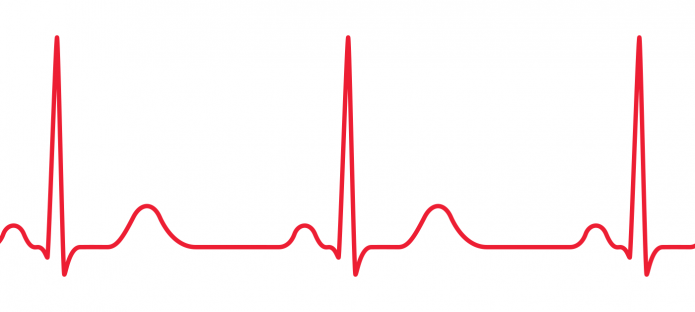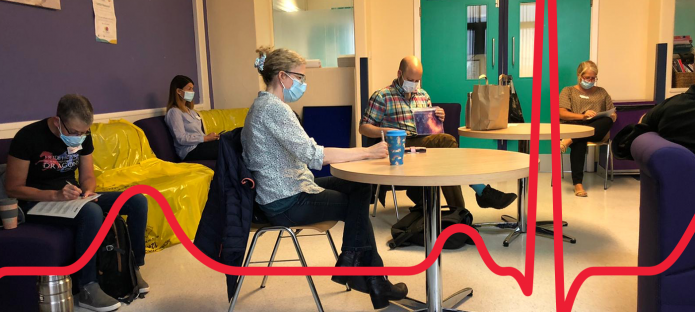Donna Campbell, resuscitation department manager at James Cook University Hospital, explains how she has facilitated the safe delivery of RCUK Immediate Life Support (ILS) courses during the COVID-19 pandemic.
Donna believes passionately that staff should be appropriately trained to manage emergency resuscitation procedures to ensure the very best care and outcome for patients. The pandemic has added another dimension too – she wants to ensure that staff know how to maintain their own safety and fully understand the Resuscitation Council UK COVID resuscitation guidance.
Here are the ways Donna has created a safe learning environment for candidates attending ILS training during the COVID-19 pandemic.
Securing senior support
One of the first priorities was to secure approval from the hospital’s senior operational COVID working group that the Trust would follow Resuscitation Council UK guidance regarding chest compressions being an aerosol generating procedure (AGP) and staff would require full AGP personnel protective equipment (PPE) prior to commencing chest compressions or ventilations. This was approved immediately.
Communicating to candidates
Donna then wanted to ensure candidates were aware of the Course Centre’s plans to keep them safe. She altered pre-course information to instruct candidates not to attend the training and to notify the centre if they were experiencing COVID-19 symptoms. This pre-course information also advised candidates about the practical aspects of the course and explained that where social distancing of two metres would not be possible, closer contact would be kept to a minimum.
Candidates on an ILS course are continually assessed on their practical skills. As demonstrating and assessing these practical skills is integral to passing the course, course Candidates were informed of this in advance and given the option to cancel their place on the course if they felt unable to perform the course’s practical tasks at this time.
To inform the candidates’ decision, the Centre informed them in advance that during the course’s practical tasks, they would supply fluid repellent face masks, eye protection, aprons and gloves to mitigate risk, hand washing facilities and hand sanitising gel would be readily available and all equipment would be decontaminated at the end of each scenario.
Ensuring safe distancing
Working in a large NHS Foundation Trust Donna’s team are fortunate to have dedicated training rooms within an Academic Centre. However, storage has always been an issue and they previously had cages of manikins, airway tables and numerous other pieces of training equipment stored around the edges of the training room which would be pulled out as required.
The need for two metre social distancing meant a new approach was required.
The team spent many hours flattening tables and moving equipment from their training rooms into the store room (which had limited space to start with!). Faced with an empty room they then got onto their hands and knees with a tape measure to mark out two metre distances with sticky tape on the floor.
Although the Trust has had sufficient amounts of AGP PPE for clinical use, Donna did not want to reduce stock by using it for training purposes. The instructors make it extremely clear exactly what staff can do in level two PPE and when AGP PPE is necessary. This has caused no confusion and when running the scenarios, it is evident that candidates are clear about this.
Some of the other steps the Centre has taken to ensure candidate safety are:
- Essential kit for each teaching session is moved into each room as required.
- A one-way system has been established throughout the Centre.
- Instructors document on the register which candidates have attended so individuals don’t need to sign in.
- Candidate numbers have been decreased to enable social distancing requirements.
- Candidates stay in the same room for the duration of the course and for all practical scenarios, candidates and instructors wear level two PPE (comprising of a fluid repellent face mask, eye protection, apron and gloves).
- Where possible, social distancing is maintained during practical aspects of the course (for example ABCDE assessment).
- Where group work is essential (BLS and defibrillation scenarios) the team limit the number of helpers to two and risk is mitigated as everyone is in level two PPE.
- At the end of each scenario, during the debrief, all equipment (BP cuffs, saturation probe, BVM, manikin, defib etc) are cleaned with disinfectant wipes.
- At the end of each skill station candidates dispose of their PPE (with the exception of their facemask which is worn throughout the day) into the clinical waste bins, hand sanitiser is immediately available, and toilets are close by for hand washing.
- Doors and windows are left open to maximise room ventilation. While wearing level two PPE for training is warm and uncomfortable it is no more so than staff experience in their clinical roles.
- Post course evaluations, normally completed at the end of the course, are now emailed out and returned electronically.
Donna said:
“We’re delighted that our course evaluations have been extremely positive during the COVIID-19 pandemic. To date, no candidates have felt the need to opt out of attending an ILS course due to the need to participate in the practical aspects of the course. It’s been really important to us to continue delivering our training, particularly as we wanted to ensure that our teams understand RCUK’s COVID resuscitation guidance.
“Simple adaptations have allowed us to continue to run our courses in a safe manner and allowed us to reflect upon our practices.
“To further reduce the time spent in the classroom we are in the process of moving to e-ILS courses. It’s great that there is this option.”
RCUK are here to support you in running courses during COVID-19; click here to find out how.

